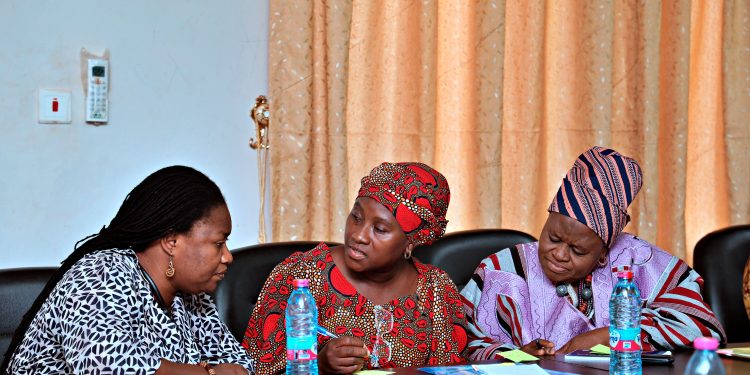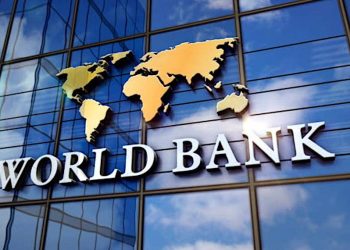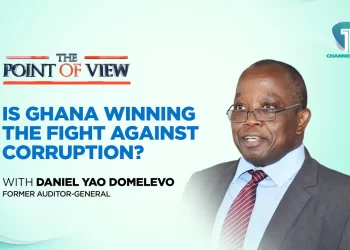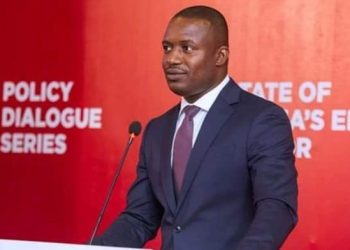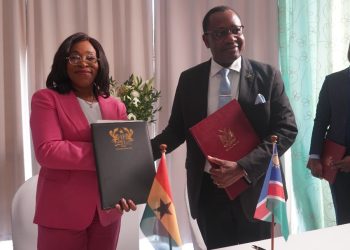A consortium of three German research and implementation-oriented projects has begun developing a blueprint for Sustainable Land Management (SLM) covering all its dimensions regarding ecological, economic, and social aspects, especially gender equity. In Northern Ghana, two workshops were held at the Tamale campus of the University for Development Studies (UDS) from November 15 to 23, 2023.
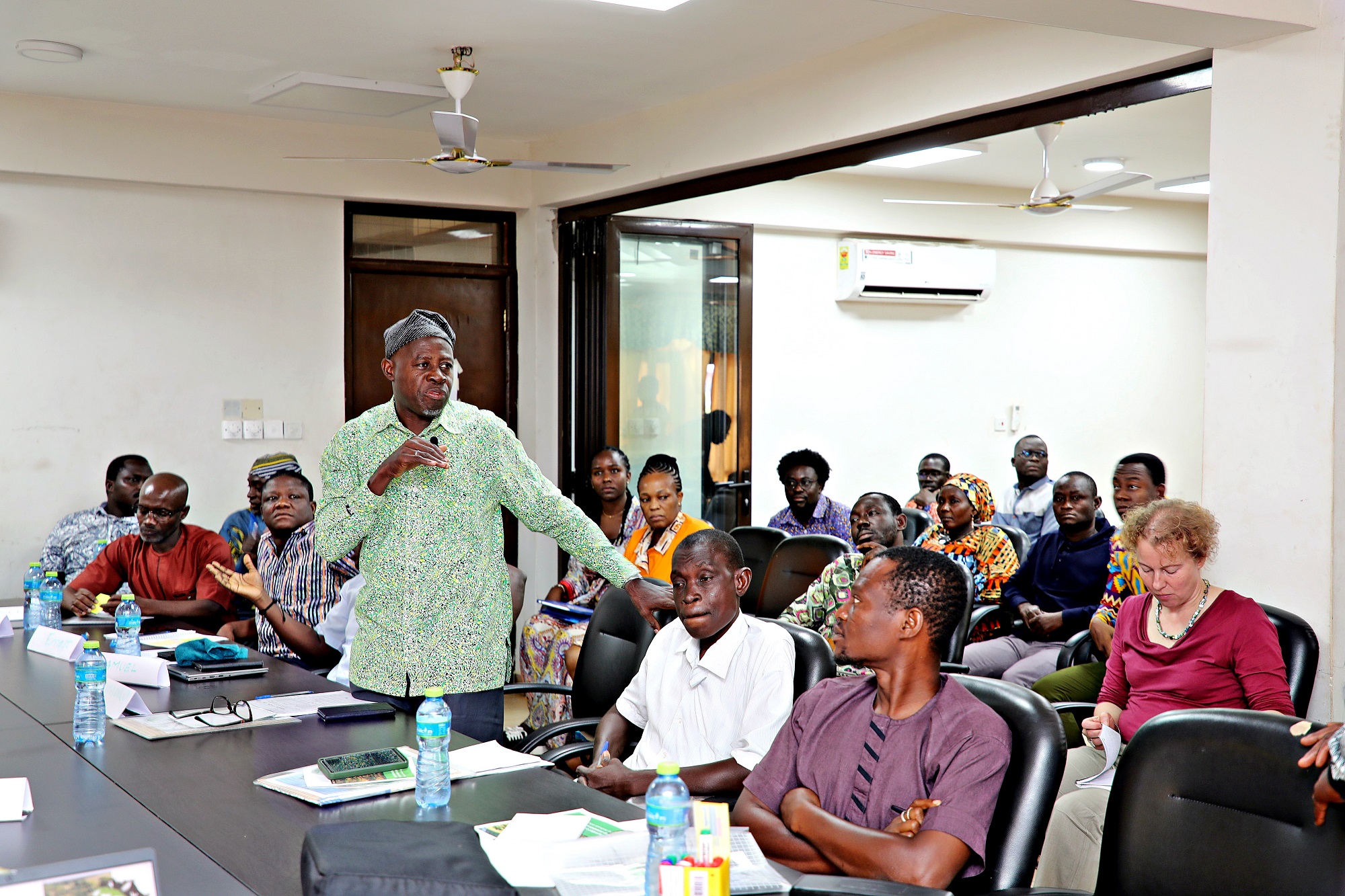
The workshops were jointly organised by the Supporting Pathways for Sustainable Land Management in Africa (INTERFACES) with two (Co-developing Innovations for Sustainable Land Management in West African Smallholder Farming Systems – COINS and Decision Support for Strengthening Resilience in the Face of Global Challenges – DecLaRe) of the four research projects in the Federal Ministry of Education and Research (BMBF) funding consortium, brought together various stakeholders from the government sector, public institutions, private sector, farmer-based organisations, international development agencies, civil society organisations, media and traditional authorities in the Northern Region of Ghana.
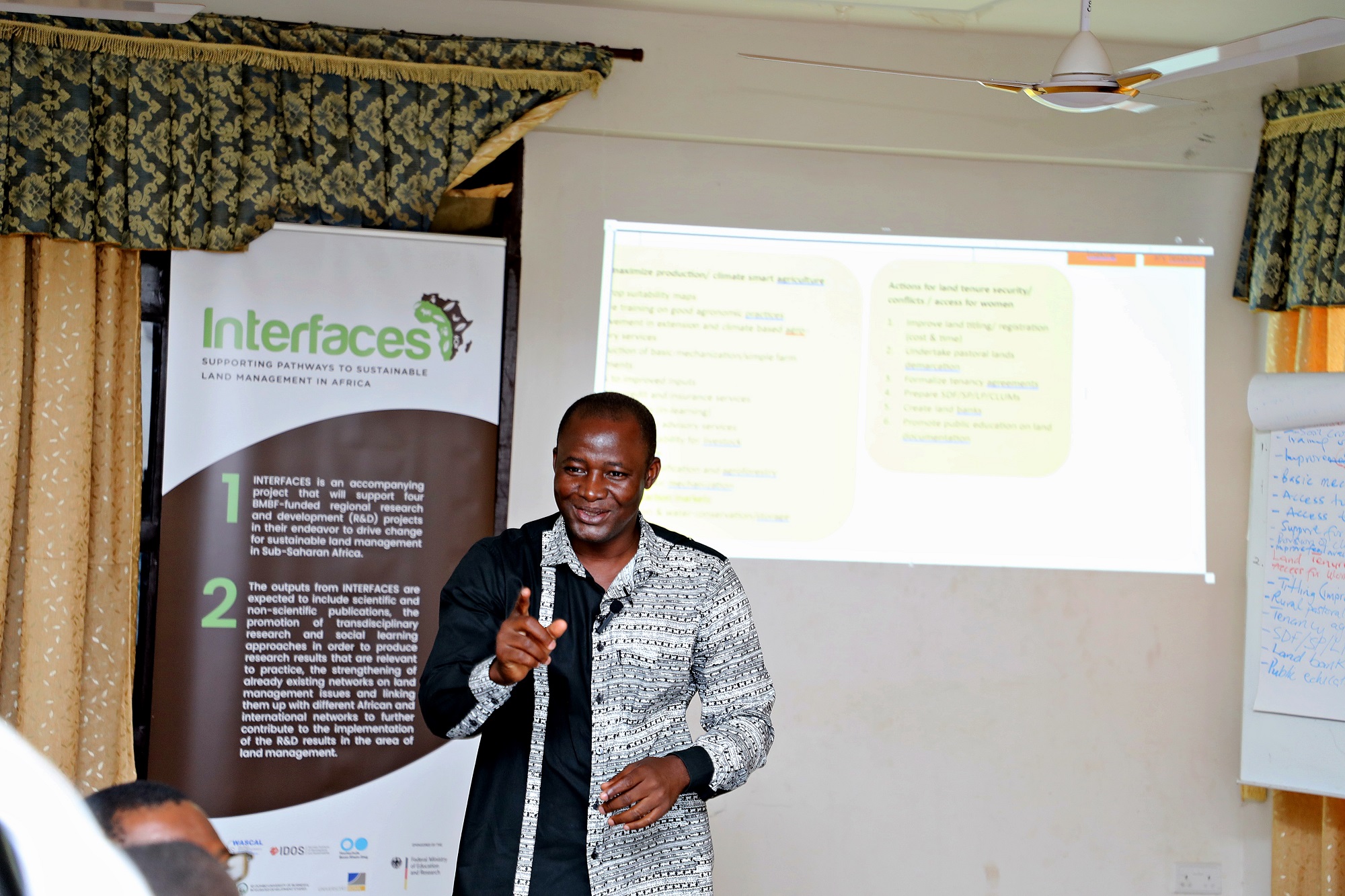
The projects aim to address long-standing challenges within the sector on land use and ownership by strengthening the weak interaction between Science, Policy, and Practice.
These initial workshops sought to establish a participatory learning platform for joint learning and exchange and develop a gender-responsive theory of change for sustainable land management. As an accompanying project, INTERFACES will focus on supporting the social dimensions of SLM, especially gender of the COINS and DecLaRe projects, which are being rolled out in the Northern and Savannah Regions as well as in other parts of Benin and Senegal.
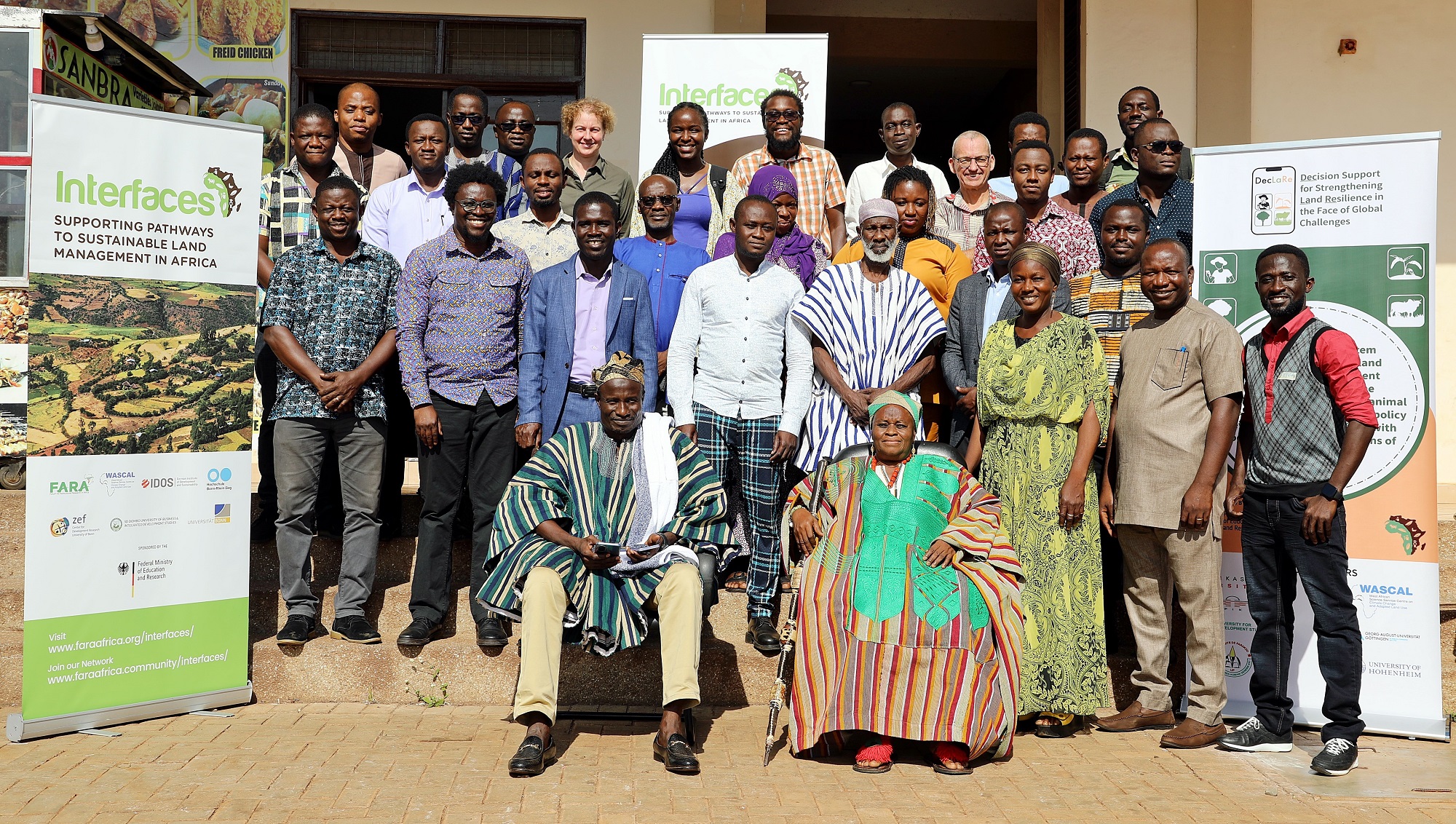
First Two-Day Workshop With The COINS And DECLARE Projects at UDS Campus, Tamale
In her introductory remarks, the Project Lead of INTERFACES and Senior Scientist at the Center for Development Research (ZEF) University of Bonn, Dr. Tina Beuchelt, highlighted the need to enhance the fusion of research, policymakers and implementers.
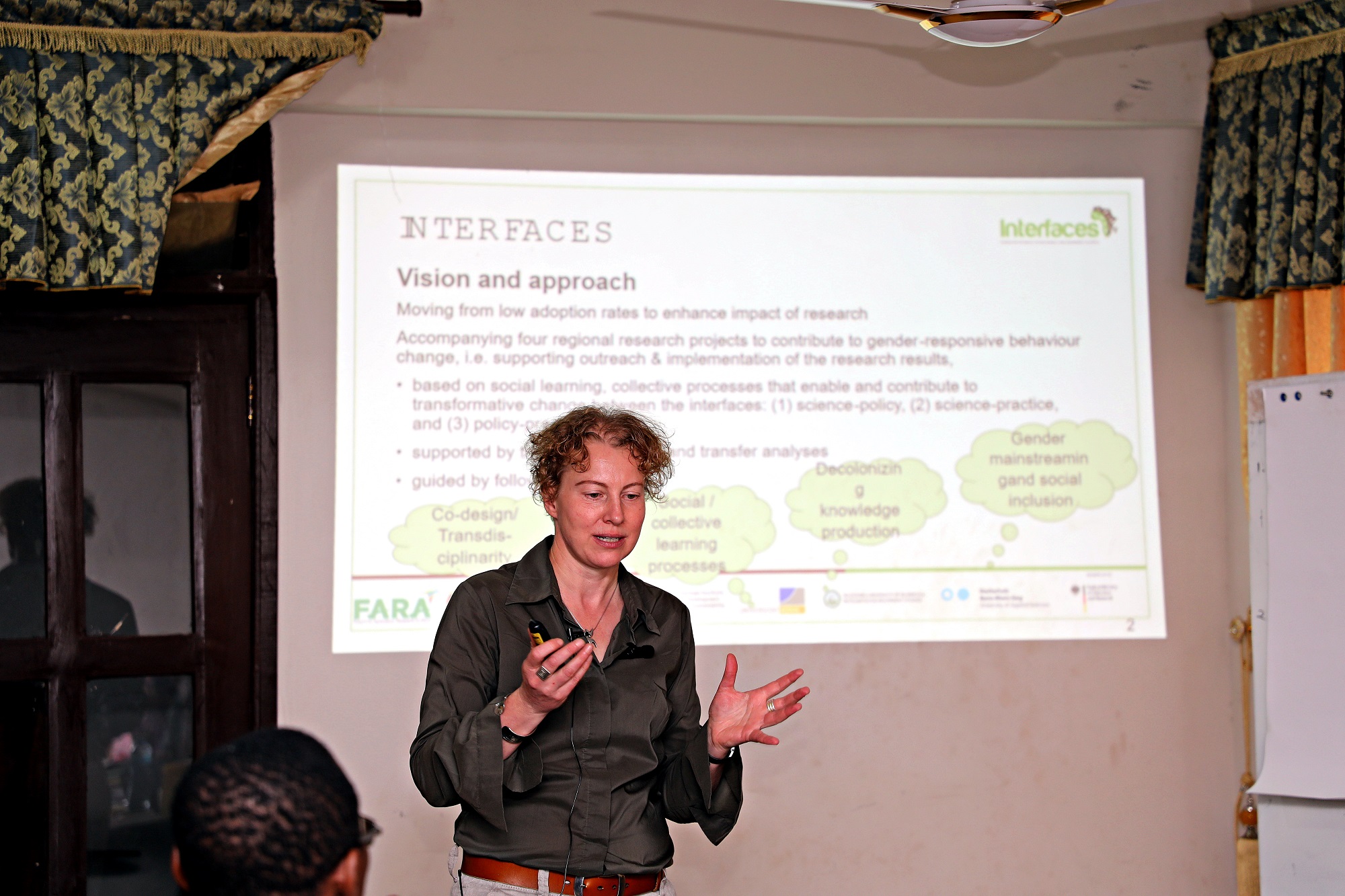
Acknowledging the historically low adoption rates, the INTERFACES team initiated a workshop to develop a Gender Responsive Theory of Change for Sustainable Land Management and establish a Participatory Learning Platform to strengthen adoption.
This collaborative approach will strengthen the implementation of research results and contribute to developing effective land management strategies.
“That’s why we thought we must engage with you, the local stakeholders who are the key experts in this area. She added, “Start discussions, learn about your experience, exchange our experiences, and get your feedback”.
Envisioning sustainable land management, Dr Peter Asare-Nuamah, a Senior Researcher of the INTERFACES project, described it as empowering farmers to optimise land use, enhancing crop yields, generating social benefits for women and men, increasing income, and conserving the environment without causing pollution or degradation.
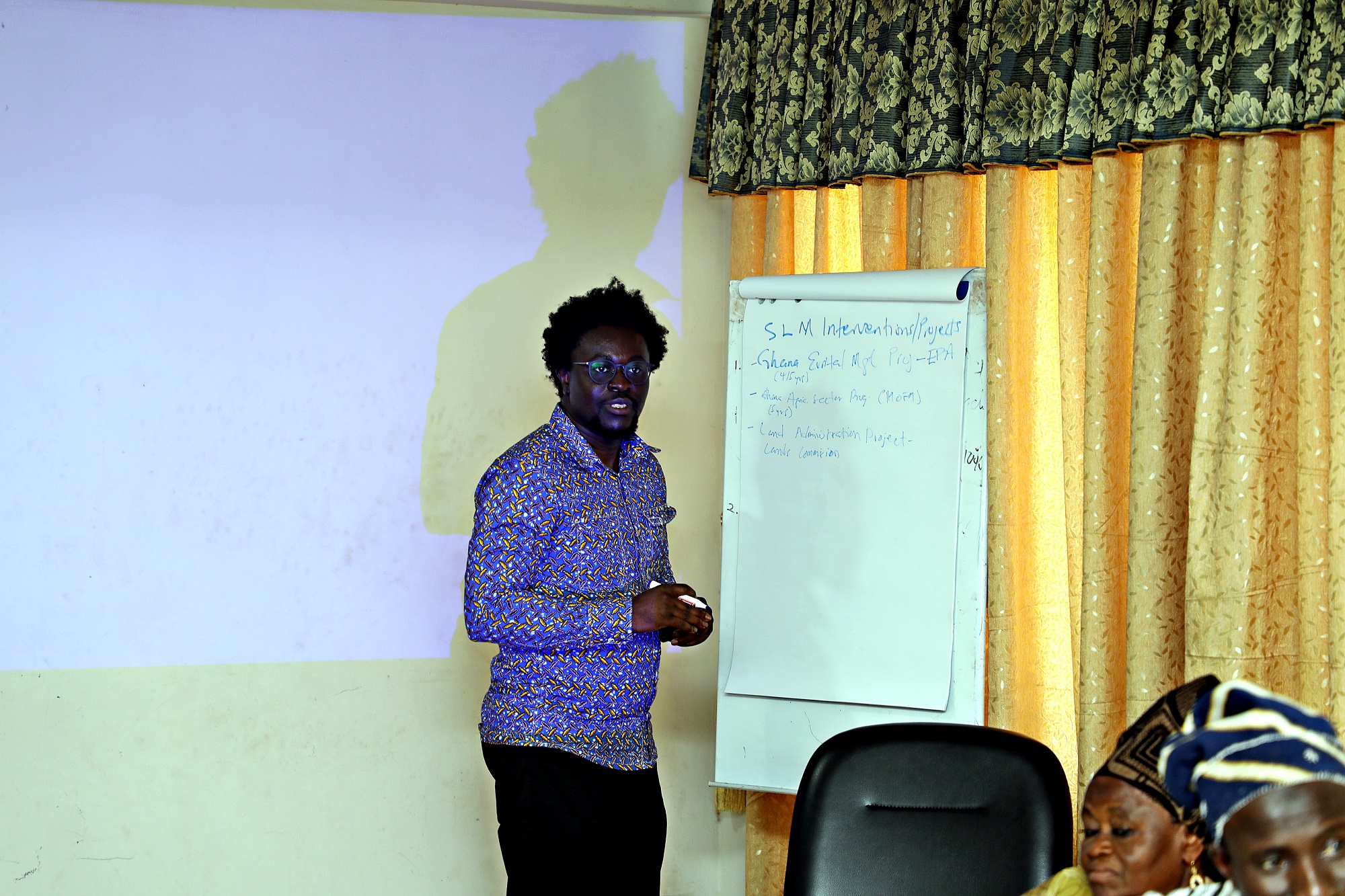
To achieve this goal, INTERFACES aims to incorporate various stakeholders’ diverse perspectives and priorities in an inclusive approach, ensuring that everyone has a meaningful role to play in shaping a sustainable future for land management. This becomes a vehicle to achieve sustainable land management.
Dr David Anaafo, a Senior Researcher with WASCAL, describes this as being “timeless, taking into consideration the needs of our present and future generations”.
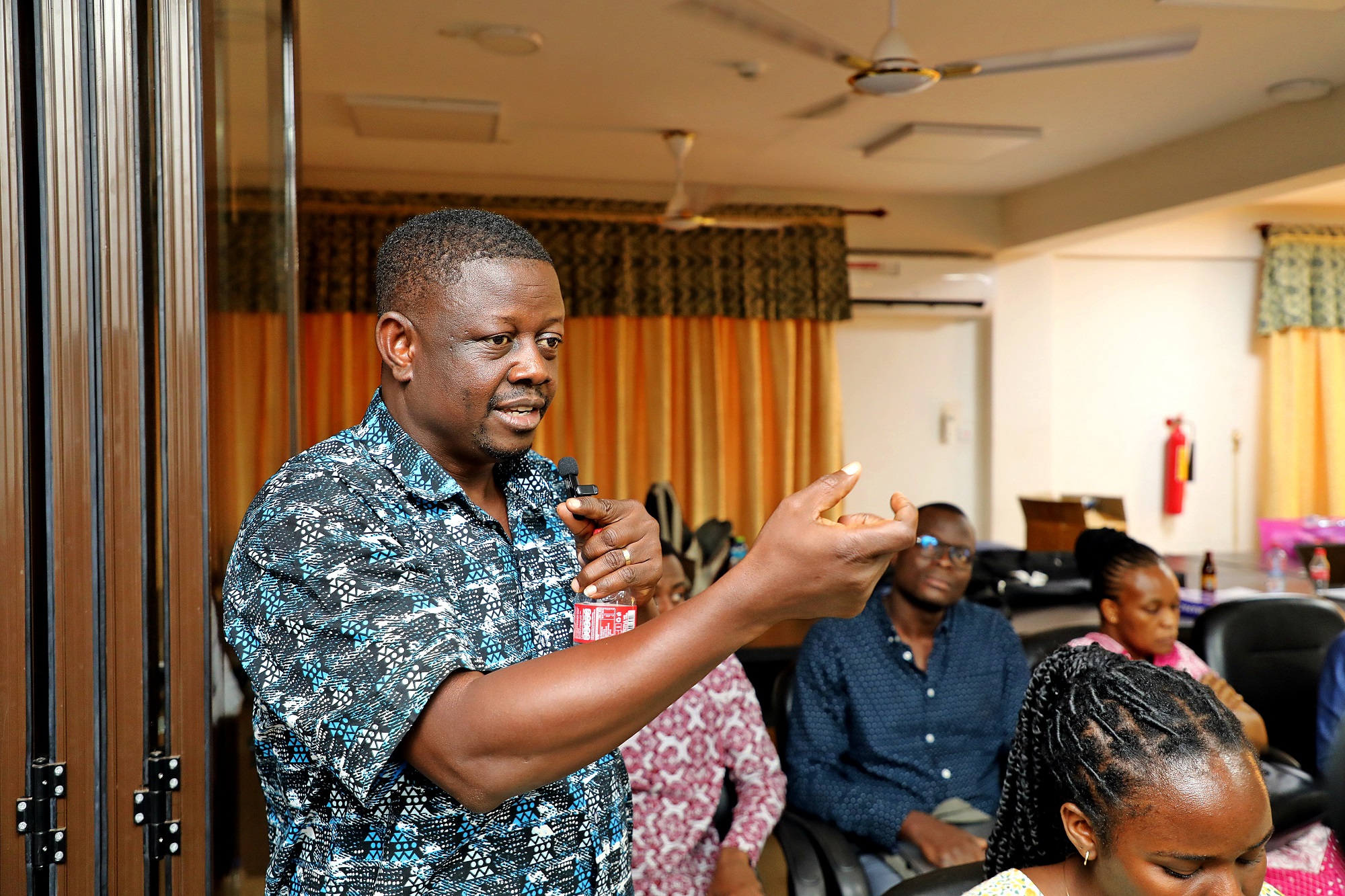
On the part of FARA, Mr Benjamin Abugri, the Knowledge Management and Communications Specialist, highlighted the role and commitment of its organisation in ensuring that the projects’ results are mainstreamed and sustained within its knowledge services and tools for the more significant learning benefit for not just the project beneficiary countries but the entire African continent.
Stakeholders highlighted conflict, urbanisation, weak legal frameworks, climate change and soil degradation, unregistered lands, changing land tenure systems and difficulties for women to access land, labour, and inputs, among others, as some of the critical areas affecting sustainable land management.
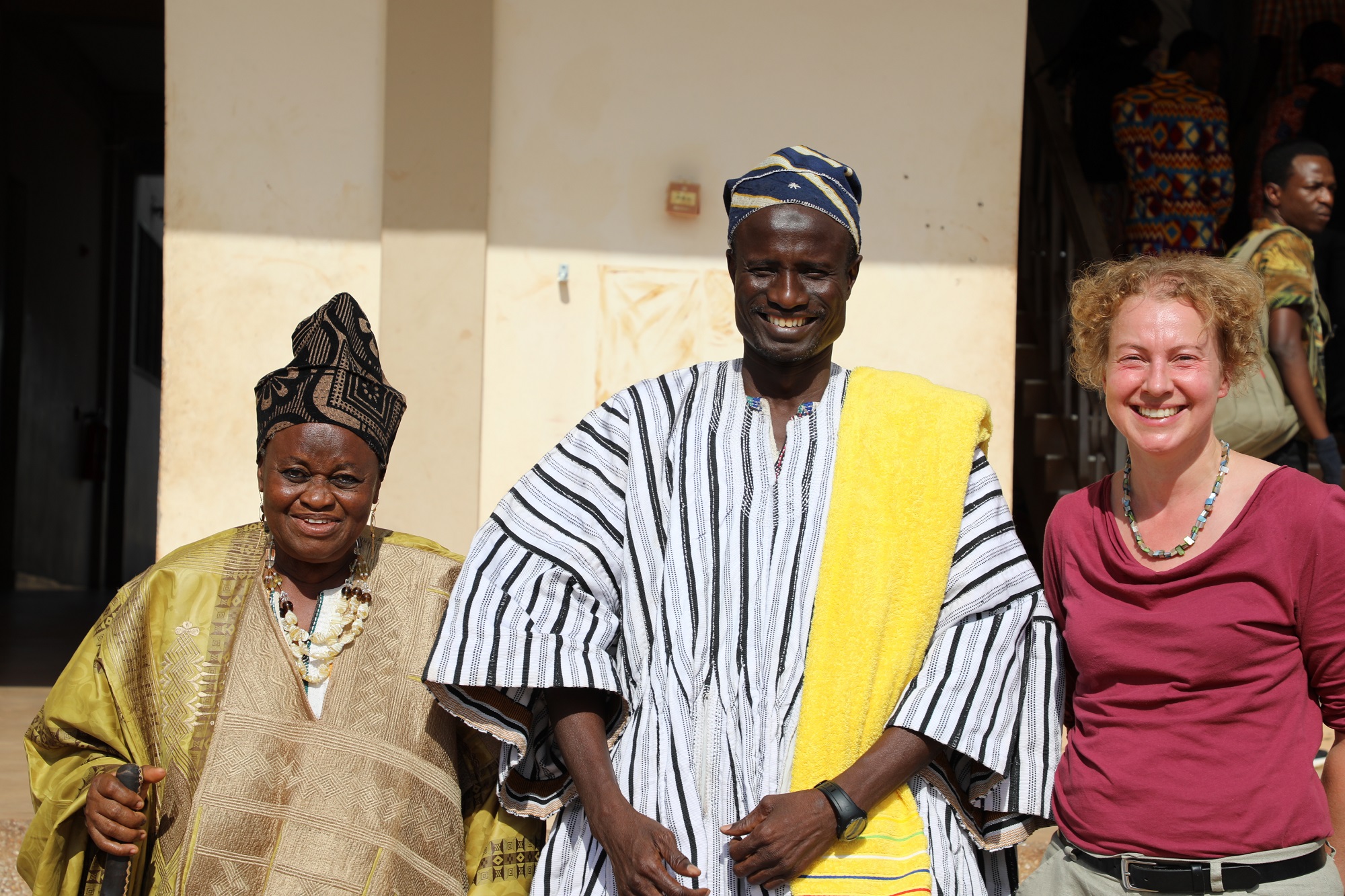
Role of Traditional Authorities
The workshop explored options for actualising a fair distribution of land among men and women in the Northern region, as currently, according to participants at the workshop, women are highly disadvantaged in accessing land.
Their main access is via their husbands, and they often only get small pieces of land to farm and the most marginal, least fertile plot. Increasing land scarcity, the pressure of investors, and the lack of documentation were identified as a few of the many issues, drivers and barriers to enable SLM.
Present at the meeting was the Secretary to the Paramount Chief of Gukpegu (Tamale), who doubles as the Kpalung Zobogu Naa, Mohamed Rashad Abdulai.
Additionally, the ‘Women’ Chief of Zabzugu Traditional Area, who doubles as the Yelzoli Gaa-Naa, Hawawu A Salifu, was in attendance.
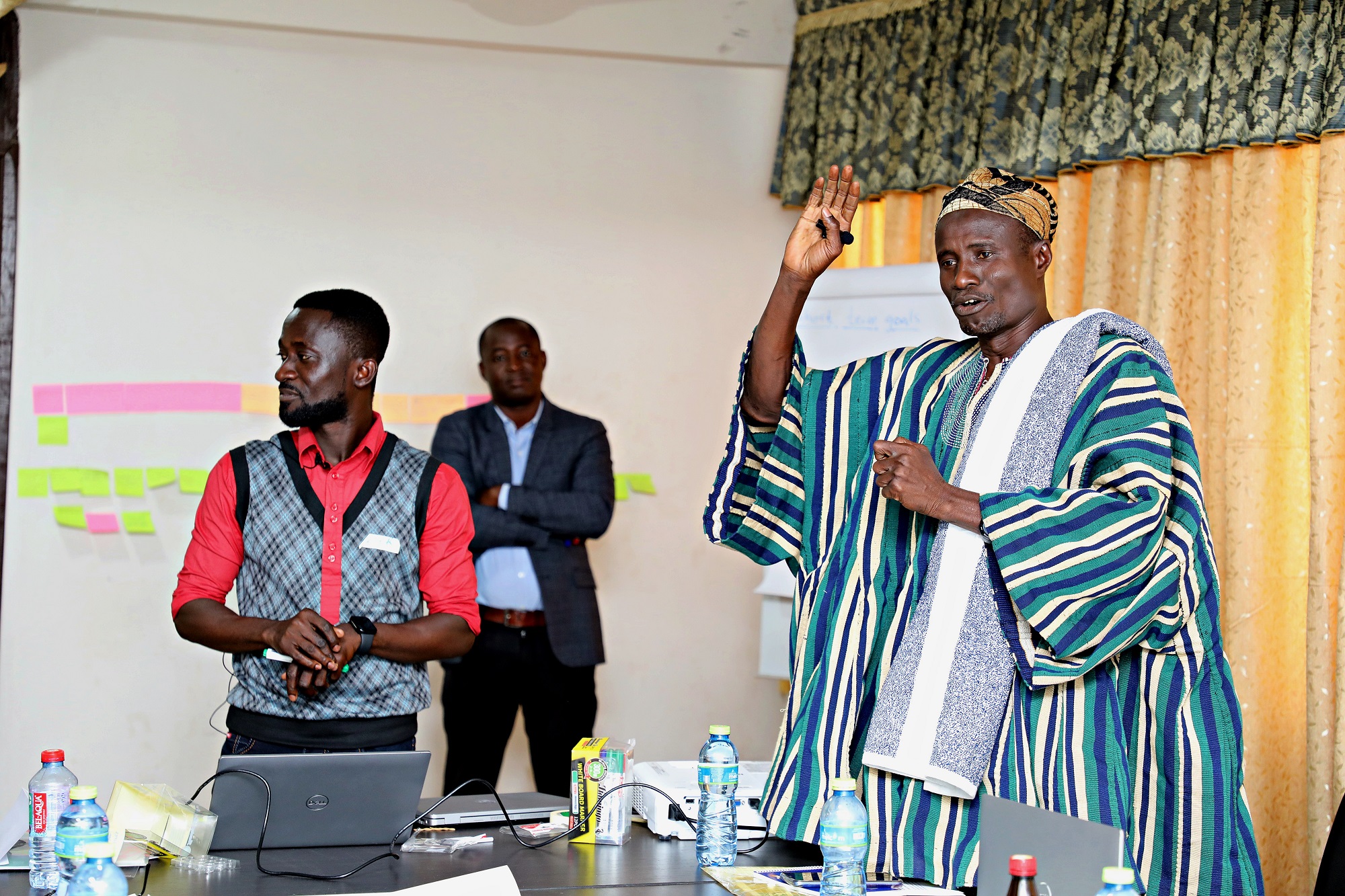
The Kpalung Zobogu Naa, Mohamed Rashad Abdulai, drawing reference from his position as the Secretary of one of the largest land secretariats in the Northern region, said “when you come to the data, there are multiple women having acres of land, so what it means is that you don’t need to carry your husband to the chief. Just meet with the elders who will lead you to the chief, and you’ll be granted access”.
On adopting the proposed approaches, he stated, “let’s start with the communication. When we are going to communicate, we must communicate in a cordial manner that will make people listen to us. Still, if we radicalise it, it won’t move a centimetre”. Yelzoli Gaa-Naa, Hawawu A Salifu called for increased education to lease land instead of selling it, noting that in the near future “it will be difficult for natives to have land for farming”.
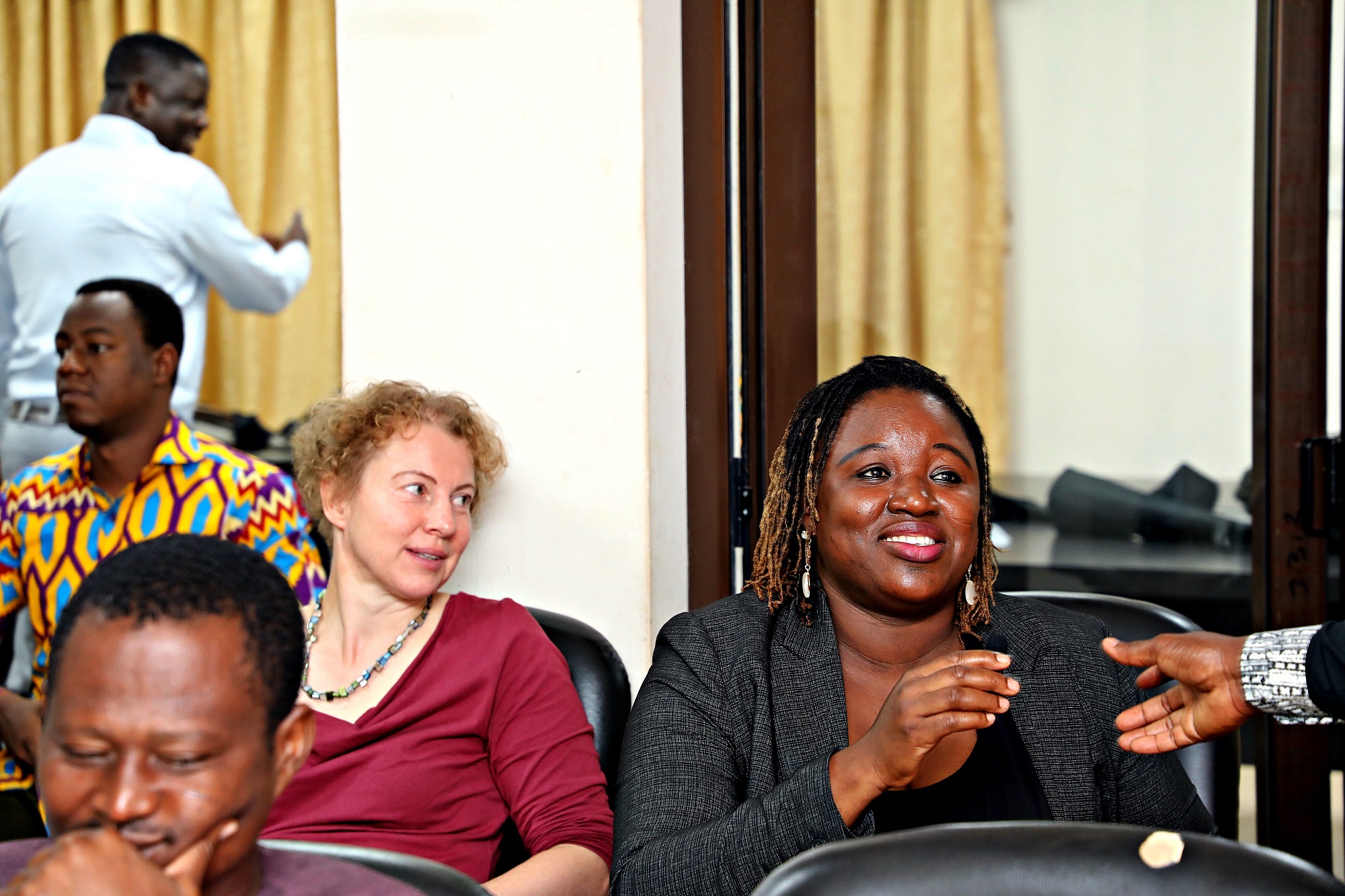
Promoting gender-responsive sustainable land management is essential as Dr Constance Akurugu, a Senior Lecturer at the SD Dombo University of Business and Integrated Development Studies, believes that within the Northern region, “women are often seen as soon to leave members of their natal families, and when they finally arrive in the marital family they are often seen as, strangers and all closely tied to this or within the context of this women rarely have ownership to productive land.”
Therefore, with a call on traditional leaders and stakeholders to overcome the barriers, policymakers must “take initiatives that will lead to entering into a memorandum of understanding with landowners, heads of families and chiefs to ensure that once an agreement is entered into for women to have access to land, they can have access to the land to use for the period” she added.
Abdul Mateen Alhassan, a former Northern Regional Focal Person for the Peasant Farmers Association of Ghana, bemoaned farmers’ difficulty accessing funding and described the workshop as timely.
He explained that “even though land is not a problem in the Northern Region, financial institutions always demand a guarantee, but the fact that people are not registered with lands as their own and to say it is a borrowed one sometimes institutions find it difficult to understand and accept it as a collateral to grant farmers fund”.
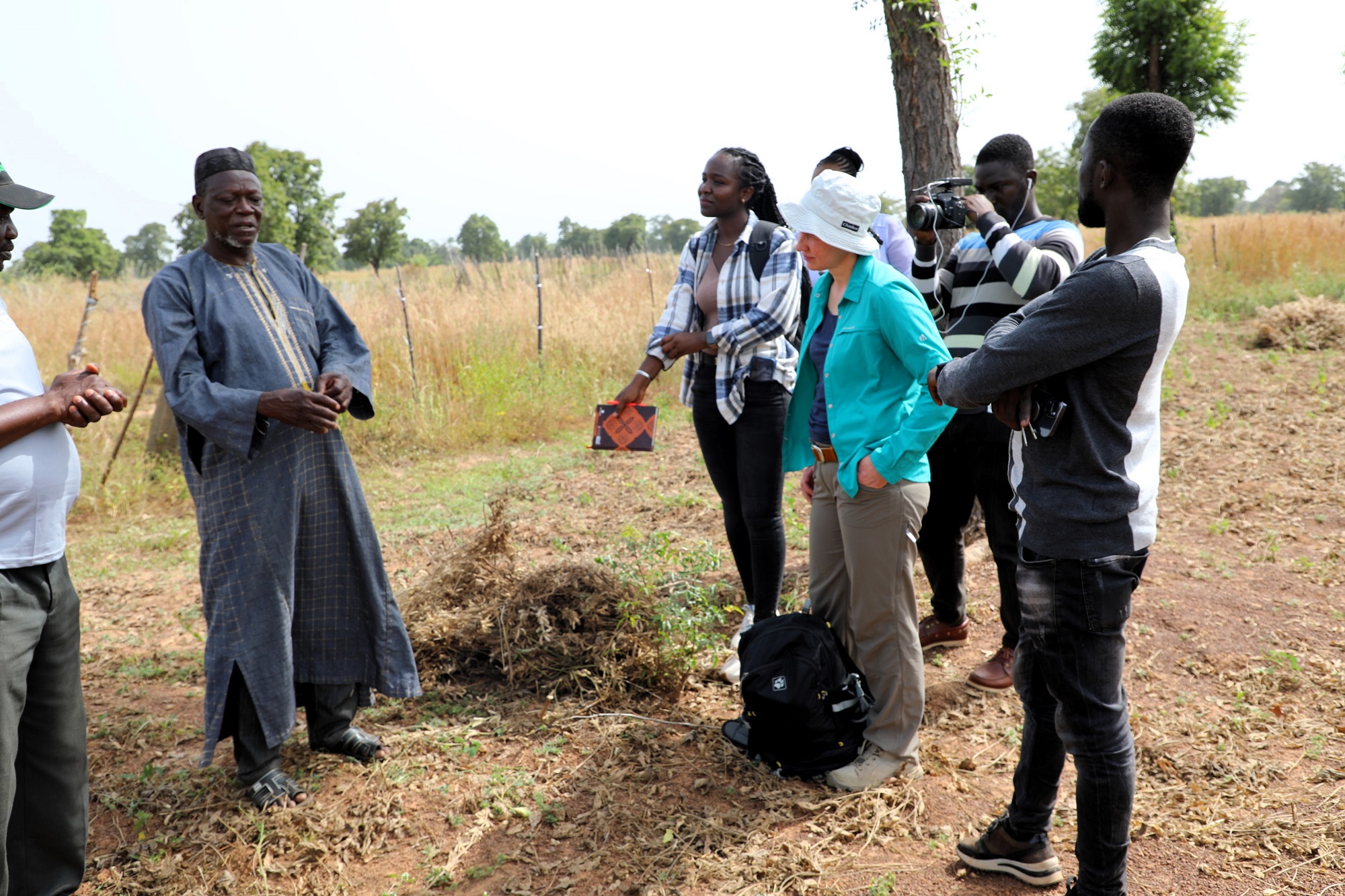
Field Visits to Tolon (Northern Region) and Busunu (Savannah Region)
• CSIR-SARI’s Integrated Soil Fertility Management Intervention in Tolon District, also working with COINS living lab intervention
The first field visit on November 17 to the northwestern part of the Northern Region showcased the success rate of the Integrated Soil Fertility Management Intervention on Alhaji Alhassan’s farm who Agrometeorologist at CSIR-Savannah Agricultural Research Institute, Dr Alhassan Lansah Abdulai describes as an “early adopter who integrated soil fertility management; and crop rotation as an integral part of their farming”.
Beginning in 2011, Dr Abdulai applauded his consistency, noting that “he is a serious soybean, maise, sorghum and groundnut farmer who has practised crop rotation to the latter”.
Alhassan recounted that with old farm practices, they “used to suffer a lot in order to get more yields to feed our families, but with the new technologies, we put in less effort to get more yields.”
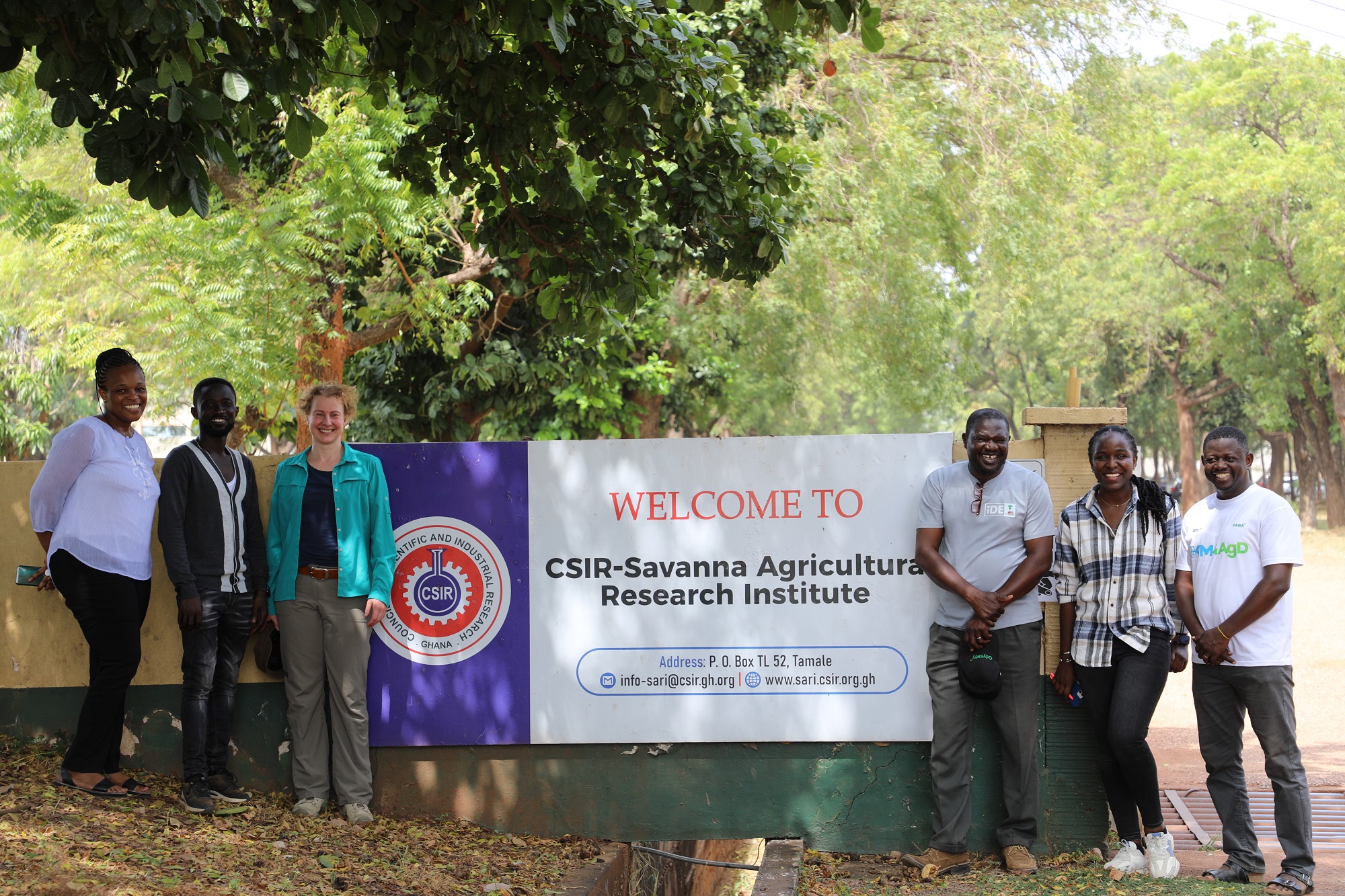
Testifying about the impact of research and extension officers, “What we get from 1 acre is equivalent to what we used to get from about 10 acres under the old system. For instance, I thought I had cultivated one acre for 2023 with my sorghum, but it was a little over one acre when we used the GPS. Despite losing about 2 bags of sorghum to post-harvest losses, I’ve got 13 bags of the 100 kg bag, but under the old system, you could cultivate large acreage and get only 6 bags. It has reduced our drudgery and cost of farming.”
For knowledge transfer among farmers, Dr Abdulai highlights a farmer exchange program “so during the season, we will bring the other farmers here and send the other people there so that they will offer farmer-to-farmer advice”.
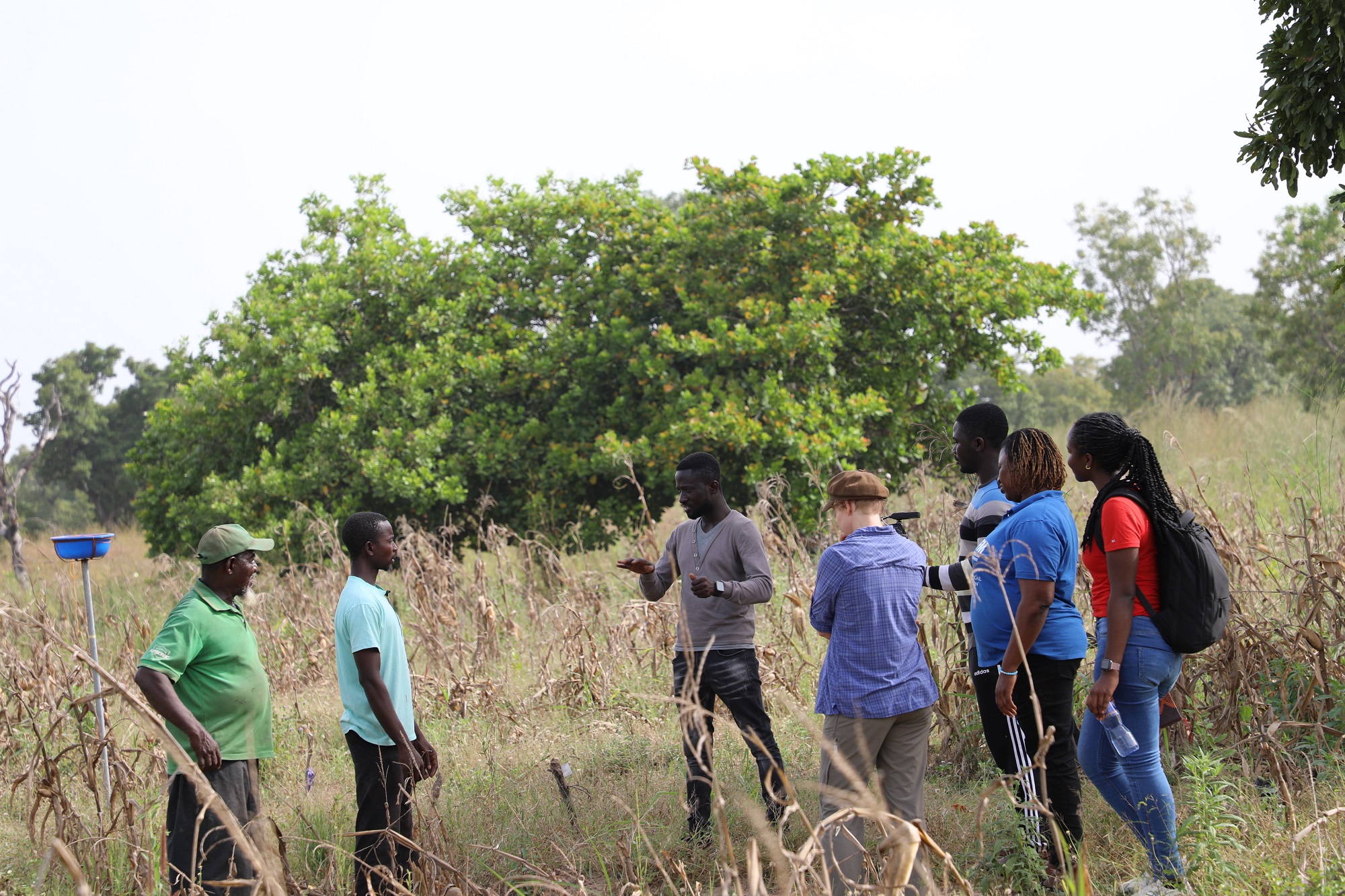
• Exploring a DecLaRe’s Project intervention and Greenhouse Farm in Busunu in the Savanna Region of Ghana
A field visit to the neighbouring Savanna Region on November 19 made a first stop at a greenhouse farm called Sadevco Gh in Busunu.
The Farm Manager, Frederick Tetteh Pechi-Anim, welcomed and shared its vegetable production techniques of “different variety of vegetables; beefsteak tomato, cherry tomato, bell pepper, hot pepper, lettuce and Mediterranean cucumbers.”
Sharing some challenges in selling its produce, Mr Pechi-Anim explained that potential customers misinterpreted their farm as a GMO producer and were hesitant to patronise it.
Due to cultural and other informational gaps, GMOs are still not accepted in northern Ghana and not promoted by the government of Ghana. However, public sensitisation at the individual level helped to integrate the market while recording a higher sale to expatriates who visit the region or farm.
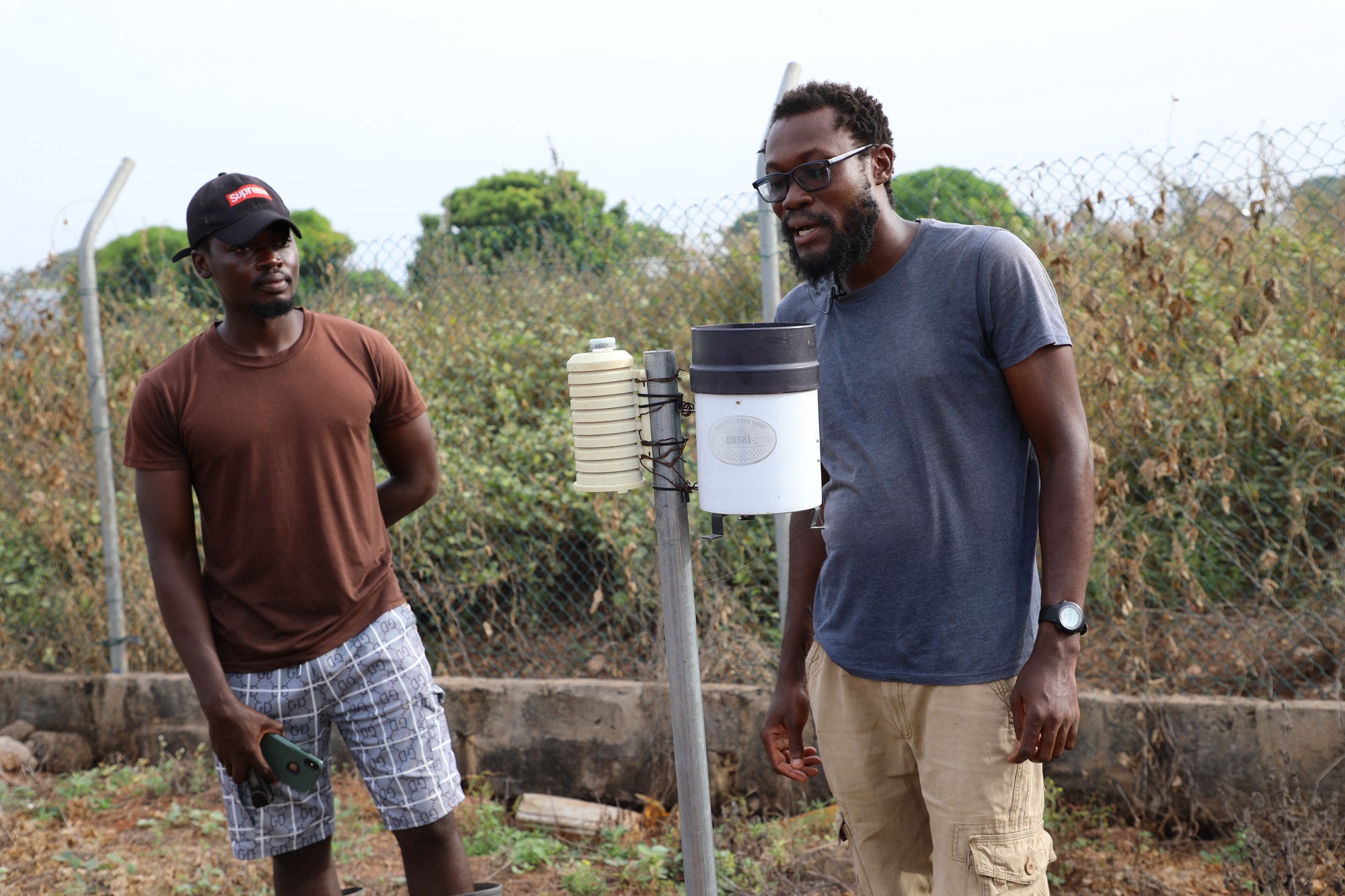
Field Coordinator for DecLaRe Project in Busunu, Dr. Deogratias Kofi Agbotui, showed the team the DecLaRe weather station positioned in Sadevco Ltd for its research. The device comprises a rain gauge and a temperature and light intensity gauge. He explained that the device helps in prediction modelling, and the data is shared with SADEVCO Ltd.
The team continued to Yussif Bofoji Tanko’s farm, testing the micro-dosing interventions promoted by the DecLaRe Project. Mr. Tanko cultivates maise, ground nuts, cashews, bambara beans and rarely cassava.
Recounting the importance of the intervention, he explained that the crops yielded better than those not under the experiment. Since this is his first year and he just harvested, he has yet to provide actual figures of yield difference.
He lamented the cattle invasion on their farms and irregular rainfall pattern on the maise production, stating that “this year the rains were too much, which destroyed crops, and we also didn’t apply fertiliser”.
Later, the team visited another farmer, Ms Zainab, who resides in Busunu. As a female farmer, she got her land from a share of her husband’s land solely for agriculture. She confirmed earlier submissions at the workshop that women face many challenges when farming.
Her husband allocated six acres of land, which she used: “three acres for corn and three acres for okra. “I had four bags of maise and a bag of okra, and I am happy about the outcome of my harvest. This year, I’m done and waiting for the next planting season, whether I will get land or not.”
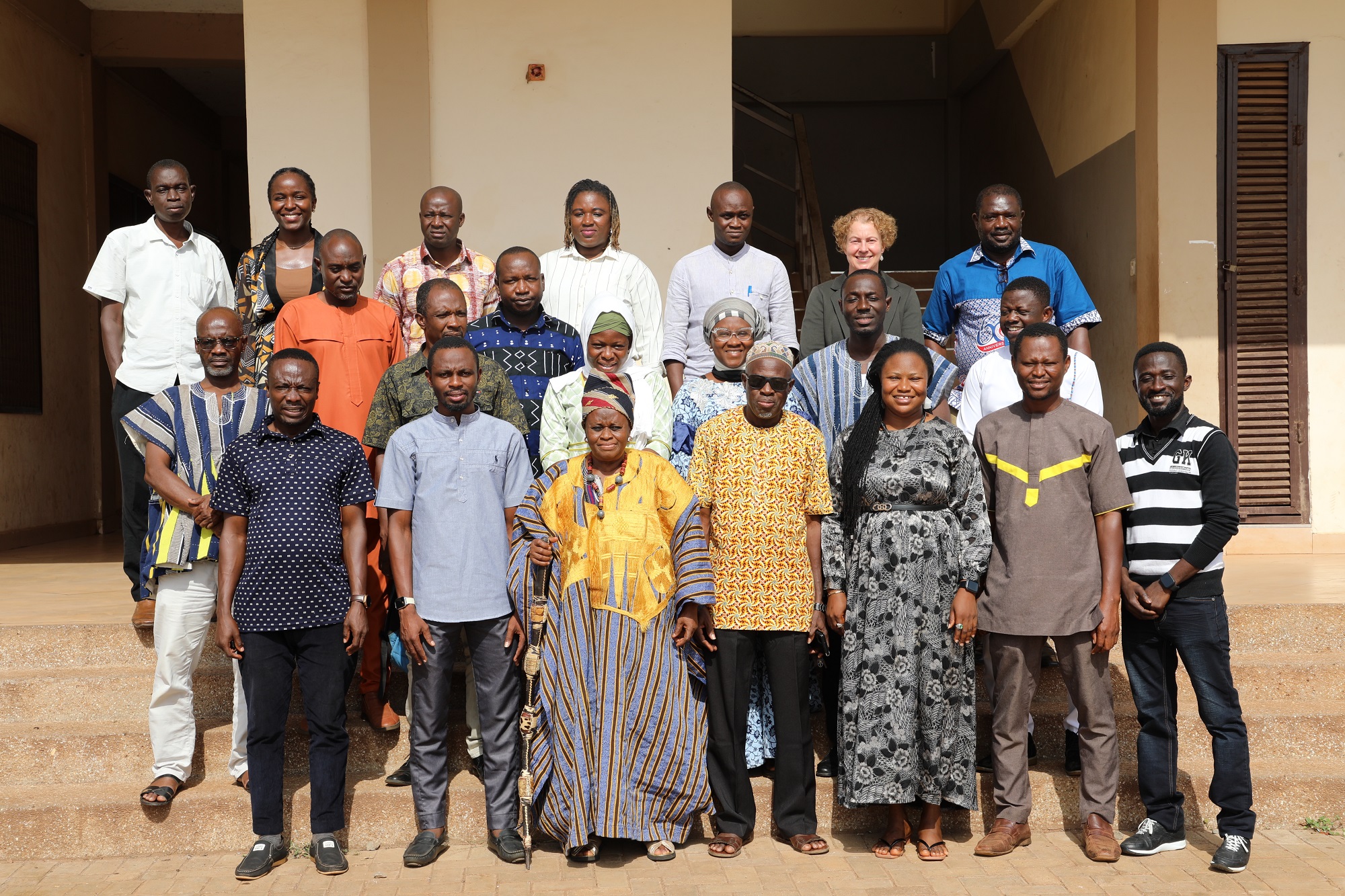
Second Two-Day Workshop on COINS and DECLARE Innovations
The second phase of the workshop was held on 22nd and 23rd November at UDS Tamale Campus to assess and forecast the economic, social and environmental impact of innovations by COINS and DECLARE in the Northern and Savannah Regions of Ghana.
Employing the ‘Decision Analysis Approach’, Dorcas Sanginga Alame, a PhD candidate pursuing Horticultural Science at the University of Bonn, says participant feedback helps to “forecast the impact of specific innovations of the regional project which INTERFACES is targeting in Northern Ghana”.
Miss Alame explained that the COINS project focuses on developing “sustainable intensification [solutions] by increasing productivity without taking up new lands” and works with Integrated Soil Fertility Management as one of the suggested innovations. The DECLARE project harbours two innovations, thus ‘micro-dosing to “increase productivity”.
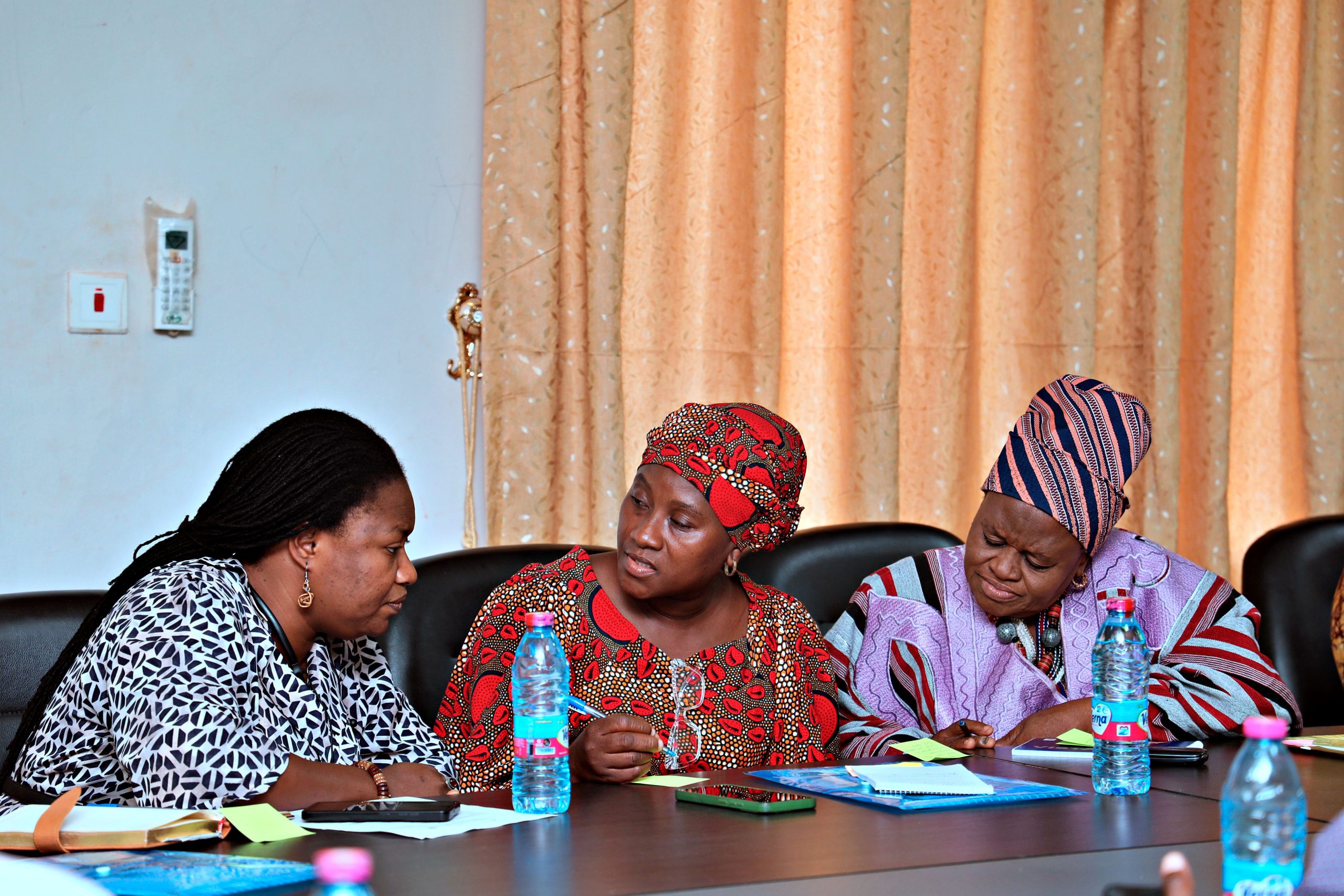
For effective participation, participants first exchanged their ideas with their table neighbours, where men and women were grouped separately, and then experiences and ideas were consolidated.
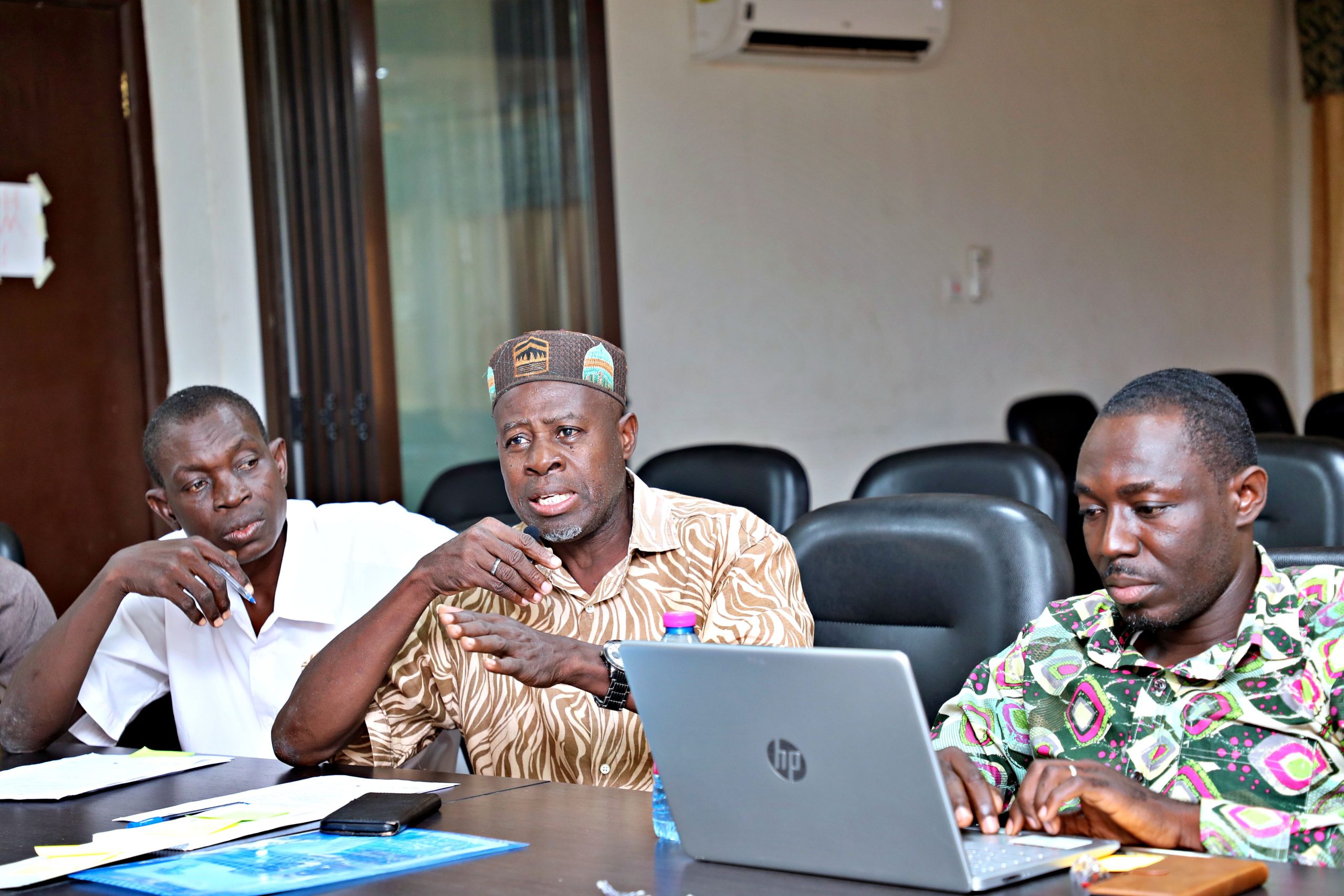
The women’s and men’s perspectives complemented each other. The discussions reviewed the benefits, costs, risks/barriers, challenges, and enabling factors for the selected innovations.
Perceived benefits of the COINS Integrated Soil Fertility Management
Among the list of its benefits labelled were increased crop yield, food security, improved income, economic empowerment, low cost of production, high income, high and sustainable productivity, marketability of products, etc.
An officer at the Northern Regional Women in Agricultural Development Directorate, Salatu Abubakar, reiterating the impact of one farming season in the North, posited that when a woman can reduce the cost of production coupled with an increase in yield then “as a woman with a small parcel of land you can get more income and you can leverage on other levels of income generation activities”.
An officer at the Northern Regional Department of Gender, Ms Bushira, highlighted the role of women in the agricultural value chain; hence, an increase in yield will mean that women who don’t farm “will like to take those yields to do processing so, in that case, it is also creating jobs for them, and they are also being economically empowered together with those who will market those products.”
Additionally, it was discussed that increased yield doesn’t necessarily translate to higher income, citing the paradox of bumper harvest where “everyone harvests and the price comes down at the end of the day you might not get higher income”.
Hence, other factors, such as price regulation and improved road networks, amongst others, should be considered. In the workshop, intense, longer discussions and exchanges followed on associated costs, risks and enabling factors. Again, the problem of access to land and the challenges women face in agriculture in adopting new practices emerged. One key aspect related to cultural norms and practices that disadvantage and marginalise women in agriculture, in addition to gender-based violence as a means to control women and their farm activities.
The Microdosing Approach of the DECLARE Project
The general concept of microdosing is to reduce the application of fertilisers by exactly placing fertiliser close to the plants.
While some microdosing variants propose applying all fertilisation in that form, the DECLARE variant only applies a microdose at the beginning of the season to young plants to give them a good start.
While recognising the importance of the micro-dosing intervention, the workshop participants called for the intervention to be contextualised within the current farming systems and practices of farmers in the project communities, which is essential to aid in acceptance and adoption.
Conclusion
Stakeholders underscored the importance of adopting a comprehensive approach to achieving food security, maintaining ecological integrity, ensuring equitable access to resources and productive lands, and implementing effective conflict resolution mechanisms.
While pointing out many benefits of agricultural innovations, the many challenges attached to successfully implementing innovations and achieving higher yields, especially under climate change, became very clear.
Among the propositions for enabling mechanisms were, for example, demonstration plots/training platforms, farmer-to-farmer exchange, availability and timeliness of inputs, bridging finance solutions, sustainable prices and more conducive policies.
The recommendations included formulating a comprehensive land-use plan, formalising land tenancy, implementing a land titling system that ensures access to land for women and other marginalised groups, and rigorously enforcing laws and policies. Further suggestions were to work with traditional authorities to change local norms and support activities like introducing the Gender Model Family (GMF) concept, a training programme developed to involve community members and families to live equitably and justly.
These measures, they believed, would create a conducive environment for sustainable land management and address some of the underlying challenges hindering progress in this crucial sector.
About the INTERFACES and the Four Regional Projects
Funded by the Federal Ministry of Education and Research (BMBF), Germany, the INTERFACES Project is an accompanying project to four other regional projects to strengthen the integration, coherence, and reach of sustainable land management.
The Four Regional Research Projects are the Co-developing Innovations for Sustainable Land Management in West African Smallholder Farming Systems (COINS), Decision Support for Strengthening Resilience in the Face of Global Challenges (DecLaRe), Increasing efficiency in the rangeland-based livestock value chains by co-designed digital technologies and machine learning approaches (InfoRange) and the Fostering local sustainable development through technology and research (Minodu).
The INTERFACES Project is implemented by African and German institutions, including the Forum for Agricultural Research in Africa (FARA), the West African Science Service Centre on Climate Change and Adapted Land Use (WASCAL) and the SD Dombo University of Business and Integrated Development Studies (UBIDS) from the Africa side, and the German Institute for Development and Sustainability (IDOS), the Centre for Development Research of the University of Bonn and the Bonn-Rhein-Sieg University of Applied Sciences (H-BRS). The projects target sub-Saharan Africa.
You may visit https://sustainable-landmanagement-africa.net/en/ for details about the Sustainable Land Management Projects.
This article is authored by Benjamin Abugri & Daniel Anyorigya (FARA)






